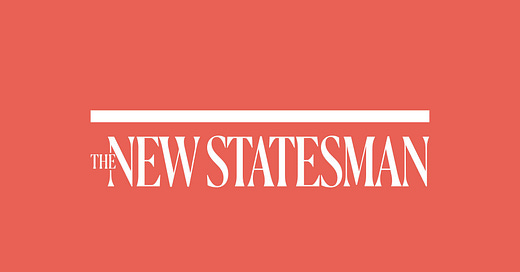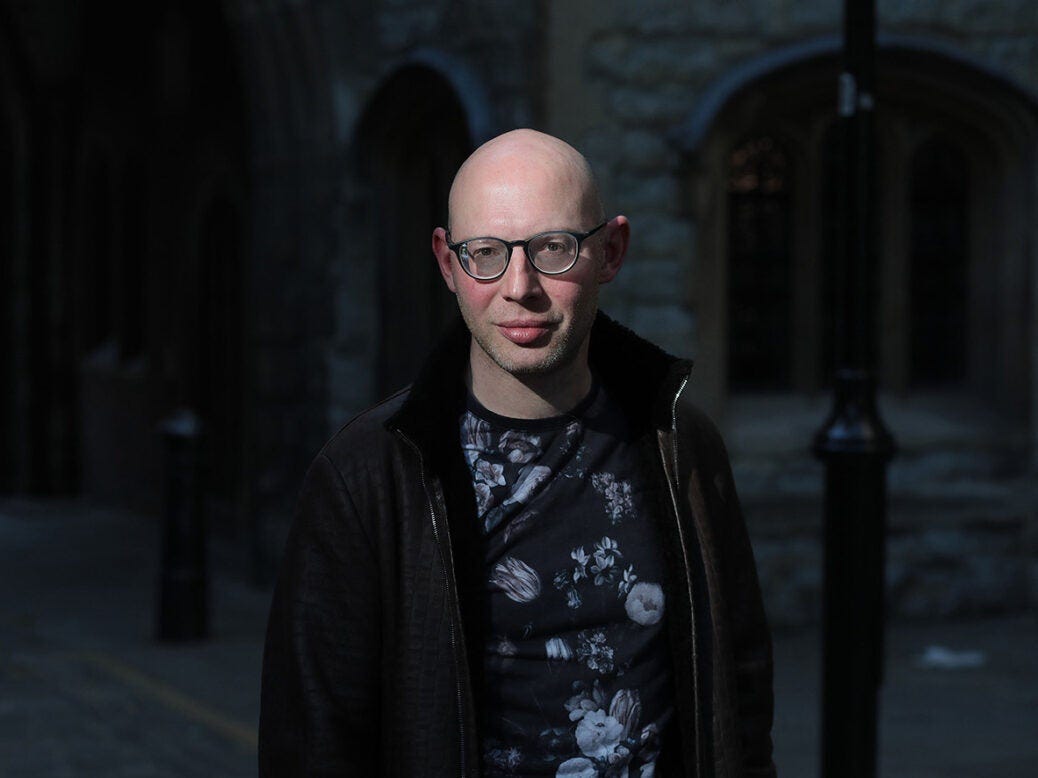Good morning. I’m excited to bring you a new version of Morning Call. As Harry outlined yesterday, for 77p a week you will now get: the back half of this newsletter each day, including Ben Walker’s polling analysis and Mailshot, our guide to everything else worth reading across the media; Will Dunn’s newsletter on Fridays; and our featured Sunday email (which Will wrote yesterday on QE), along with our Q&As with leading thinkers. You will receive these articles in your inbox in full. And this week you can take out a subscription for 10 per cent off – that’s £3 a month:
As a free subscriber you will still receive my daily analysis as usual. But if you are a long-time reader and felt able to support the newsletter, we’d greatly value that. If you read Morning Call for work, what could be a more justifiable expense? Let’s get to it.
Budget analysis…
Prepare yourself for 48 hours of fiscal speculation. It’s all part of the pre-Budget ritual: journalists ferret around Whitehall sniffing out the contents of the big speech as the Treasury makes last-minute changes. Sometimes, it seems we spend more time predicting the Budget than analysing the details after they’ve been announced.
Is that wise? It probably doesn’t help scrutiny. Jeremy Hunt succeeded in saying very little on the media round yesterday because he could (rightly) claim the Budget had not yet happened. At the same time, it’s probably inevitable. If journalists have information, they are going to share it. And understanding the process by which decisions are made – the rise and fall of policy, for instance, as the official forecasts change – is useful in itself.
Privet?
The Russians are listening. That was the lesson German defence chiefs learned over the weekend after a video call between some of its senior air force officers was intercepted and then leaked. In a conversation about why the German government would not send Taurus cruise missiles to Ukraine, the Luftwaffe chief, Ingo Gerhartz, suggested that Britain had people on the ground in the country. The news came after the New York Times recently revealed that MI6 had worked closely with the CIA to support Ukrainian intelligence since fighting broke out in 2014.
It is a reminder that – beneath the political chaos – the British government is trying to win a war. Mock villages in East Anglia have been built to train Ukrainians. The army has taught 34,000 Ukrainians to fight since June 2022 and more than 60,000 since the war began in 2014. Britain has pledged almost £12bn in direct military support for Ukraine (a 2p cut to income tax would cost only £2bn more). That compares with around $75bn from the US, with a further $60bn struggling to get through Congress after Donald Trump ordered his supporters to oppose it.
Because Trump may end American support for Ukraine if he enters office next January, Europe must urgently bolster its own defence capabilities. That is one reason why Labour wants to rebuild the UK’s relationship with Europe. The plan is to agree a European security pact as soon as possible. This would be in addition to a defence agreement with the Germans within the first six months of a Labour government, something the party first suggested back in 2022. The aim is to increase cooperation in training, procurement and military-industrial strategy in order to ensure Europe can fuel Ukraine’s fight against Russia. In other words, to build bombs together.
Labour faces a few problems. The first, as we’ve discussed before, is money. The party will have to reconcile the need to increase defence spending with its self-imposed fiscal constraints. The second is that, as Labour’s defence bigwig John Healey argued in a speech last week, the armed forces and the Ministry of Defence need serious reform (of procurement, and the strained relationship with the Treasury, for instance).
But that shouldn’t distract from the low-hanging fruit. The EU offered a security pact to Boris Johnson in 2019 but he said no. In other words, the EU has already said it wants to do this, and has continued to indicate its interest about a deal to Labour. This is an area where the party hopes to make progress quickly upon entering office.
The tax-dodger’s worst enemy
At a café in the rural expanse around Hunstanton, a sandy seaside town in west Norfolk, the tax lawyer Dan Neidle was making his case. “The duck-fat hash browns here are amazing. I’m getting one. Go on, order one.” I did. He was right.
Thankfully for his bank account, Neidle has turned out to be right about quite a lot of things. Most memorably, the £3.7m in capital gains tax owed by the former chancellor Nadhim Zahawi – sacked by Rishi Sunak last January for not disclosing that he was under investigation by HMRC. Despite the prospect of losing “millions of pounds” if he had been successfully sued by the minister, Neidle pressed ahead with his claims about Zahawi’s finances, and was vindicated. He then turned his attention to the Tory peer Michelle Mone and her husband, the billionaire businessman Douglas Barrowman – who had links to a company that won PPE contracts during the pandemic – and to the Post Office claiming tax relief on the compensation paid to workers wrongfully accused of fraud. Not a bad record for a retired stay-at-home dad.
Confessions of a City trader
Gary Stevenson entered the London trading floor of Citibank as a 21-year-old boy in the summer of 2008, weeks before the implosion of the global economy. He left it in 2012 as Citibank’s most profitable foreign-exchange trader, having made millions from betting billions on the long aftershock of the Great Recession. He went from living with his parents in Ilford, “in the shadows of east London’s skyscrapers”, to living as a millionaire in a marina. As a boy he would watch the train his father took to work as a postman pass by his bedroom window, catching a glimpse of a man on his way to earn £20,000 a year for a family of five. In his second year at Citibank, Stevenson was paid a bonus equal to 20 times his father’s salary. In his fourth year his bonus was £2.4m.
Stevenson made his fortune by betting that austerity would be far more damaging that most people expected. Developed economies, he realised in early 2011, were not going to recover. Interest rates were not going to rise, as economists predicted. The poor were going to stay poor and the wealthy would thrive. “JB, you don’t get it do you?” he said in 2012 to a fellow trader who had mentored him in his early days at the bank. “The asset holders never lose. The rich never lose.”
Freddie’s picks
“We were always given irritating, schizophrenic edicts: ‘be more like the New York Times’, ‘be less like the New York Times’, ‘be more like Vice’.” Clive Martin recalls his time in the white heat of Vice’s newsroom.
Ellen reports on the Royal Society of Literature’s civil war over censorship, governance and entry standards.
Fascinating essay from the historian Richard J Evans on whether claiming to be on “the right side of history” makes sense. It comes down to how we understand history itself.
Join Morning Call and read on for Mailshot, Ben’s take and the sign-off each day. Thanks to Ana and everyone else who subscribed yesterday.
Keep reading with a 7-day free trial
Subscribe to Morning Call to keep reading this post and get 7 days of free access to the full post archives.











